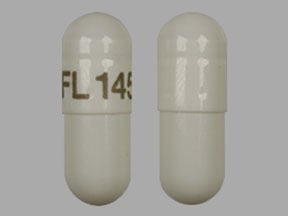
Linzess Coupons & Savings Card – Discount Prices from $285.84
My prescription
Edit
145MCG, Linzess (30 Capsules)
Select pharmacy

CVS
$309.27
COUPON PRICE
Albertsons
$285.84
COUPON PRICE
Walgreens
$294.91
COUPON PRICE
Walmart
$299.23
COUPON PRICELinzess savings card
Show this card to your pharmacist
Albertsons
$285.84
BIN
ID
PCN
GRP
019876
LH742C97CA
CHIPPO
LHX
Powered by
Related GC-C agonists prescriptions
More prescriptions for irritable bowel syndrome
Related GC-C agonists prescriptions
More prescriptions for irritable bowel syndrome
Price history for Linzess
30 Capsules, 145MCG
Average retail price for Linzess
Average SaveHealth price for Linzess
Our price history data is based on aggregated prescription data collected from participating pharmacies in America. Our prescription data updates daily to reflect the latest price changes. If you notice a missing data point, it means there wasn't sufficient data available to generate a monetary value for that date.
*Retail prices are based on pharmacy claims data, and may not be accurate when we don't have enough claims.
Linzess dosage forms
Dosage Quantity Price from Per unit 72MCG 30 Capsules $285.65 $9.52 145MCG 30 Capsules $285.84 $9.53 290MCG 30 Capsules $285.76 $9.53
| Dosage | Quantity | Price from | Per unit |
|---|---|---|---|
| 72MCG | 30 Capsules | $285.65 | $9.52 |
| 145MCG | 30 Capsules | $285.84 | $9.53 |
| 290MCG | 30 Capsules | $285.76 | $9.53 |
Is Linzess a stool softener or laxative?
Linzess is a type of laxative. It is specifically a guanylate cyclase-C agonist used to treat certain types of constipation by increasing the secretion of chloride and water in the intestines, which helps to soften stools and stimulate bowel movements.
What is the most common side effect of linzess?
The most common side effect of Linzess (linaclotide) is diarrhea.
Do you need to drink lots of water with Linzess?
Yes, it is generally recommended to drink plenty of water while taking Linzess. Staying well-hydrated can help manage potential side effects such as diarrhea and support overall digestive health. However, specific hydration needs can vary, so it's best to follow any additional guidance provided by a healthcare professional.
What medications cannot be taken with Linzess?
Linzess (linaclotide) may interact with certain medications, although it is generally considered to have a low potential for drug interactions. However, it is important to be cautious with medications that can affect gastrointestinal motility or those that may cause diarrhea, as Linzess itself can cause diarrhea. Patients should inform their healthcare provider about all medications they are taking, including over-the-counter drugs and supplements, to ensure there are no potential interactions. It is always best to consult with a healthcare provider or pharmacist for specific concerns regarding drug interactions with Linzess.
Does linzess make your stool soft?
Yes, Linzess (linaclotide) can help make stools softer. It is often prescribed to treat conditions like irritable bowel syndrome with constipation (IBS-C) and chronic idiopathic constipation (CIC), as it works by increasing the secretion of chloride and water in the intestines, which can soften stools and promote bowel movements.
